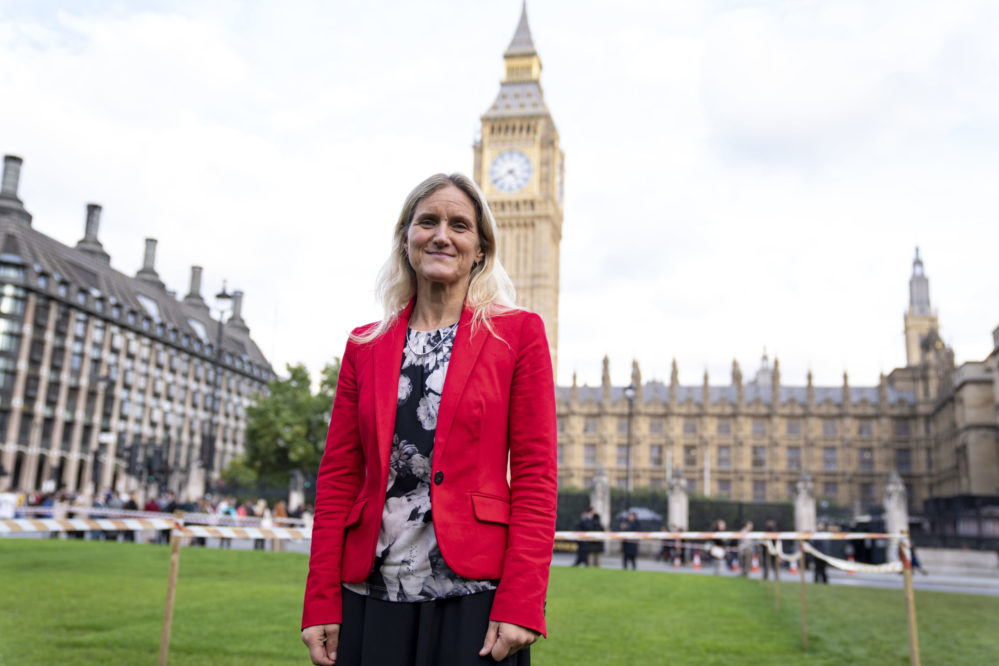Assisted dying proposal clears latest Commons test amid money questions

A proposed law to legalise assisted dying in England and Wales has passed its latest Commons test, amid questions about the cost implications for taxpayers.
MPs approved a money resolution that would provide the legal basis for public spending connected to the Terminally Ill Adults (End of Life) Bill should it become law.
No formal vote was required on the motion despite fears from the Bill’s sponsor, Kim Leadbeater, Labour MP for Spen Valley, that opponents of assisted dying wanted to block the Bill using “procedural manoeuvring”.
The Bill could see terminally ill adults in England and Wales, with under six months to live, legally allowed to end their lives, subject to approval by two doctors and a High Court judge.
Health minister Stephen Kinnock said the money resolution was required to allow the Bill’s committee stage, where amendments can be tabled, to consider the clause which has spending implications.
Neutral stance
Mr Kinnock, who said the Government maintains its neutral stance on the Bill, told the Commons: “Tabling this money resolution allows further debate to happen.
“To assist that debate, the Government will also assess the impacts of the Bill.
“We expect to publish the impact assessment before MPs consider the Bill at report stage.”
For the Conservatives, shadow justice minister Dr Kieran Mullan said: “These are not merely procedural or technical issues. The Government’s tabling of this money motion signals an acceptance that should the Bill become law the financial costs will need to be met and these will not be a minor area of expenditure.
“The House has a duty to scrutinise every aspect of this legislation and I urge the Government to provide a degree of clarity that only it can provide to assist members in doing this.
“At this stage there’s been a clearly expressed will of Parliament to introduce this service and it’s right for the Government to make legal provision for funding it in principle, but the Government should enable members to make decisions at future stages with as good an understanding as possible of how the legislation they may wish to support will translate into the real world.”
Ms Leadbeater said of the money motion: “It is a standard procedure that comes before this House all the time. Without it there can be no Bill, which I would humbly suggest is sadly what some people want and are intending. And it’s not a blank cheque, as some members have suggested.
“The right time to discuss the detail of what expenditure may be required is when we know the final shape of the Bill.
Impact
But Conservative former minister Sir John Hayes raised concerns over the impact of the Bill on other parts of the health service.
He said: “What we’ve been presented with today is an open-ended commitment.
“The wording is very clear, it makes absolutely clear that any expenditure incurred under or by virtue of the act by the Secretary of State, any increase attributable to the Act in the sums payable under or by virtue of any other Act, money is so provided.
“(Ms Leadbeater) says it’s not a blank cheque. You can’t get much more blank than that can you? Because essentially any monies associated with this Bill, if it becomes an Act, will be provided.”
He added: “Where will that money come from? It can only come from presumably existing resource, one assumes palliative care, it’s not going to come from A&E or surgical treatments, or GPs, it’s presumably going to come from that source. But one doesn’t know, of course, but it’s perfectly reasonable to ask that question.”
Conservative former minister Kit Malthouse said: “If this House is going to start getting into micromanaging what we think Government should, and shouldn’t spend on particular drugs, or treatments, or crimes, or interventions, then I’m afraid we’re going to end up in a bit of an unholy mess.
“I have yet to hear anybody in this House object, for example, to the creation of a new criminal offence on the grounds it will be more cost for the police.”
Labour MP Antonia Bance urged the minister to “set out where the funding will come from”.
The Tipton and Wednesbury MP added: “This Bill imposes new unfunded, unknown costs on our courts. It just blindly assumes that judges and courts will be available, yet waiting time for a family court case at the moment is 10 months, which just won’t work for this Bill.
“How much will the extra spending on courts cost?”
TUV MP Jim Allister (North Antrim) said the Bill will “impose huge costs on the health budget and huge costs on the justice budget”, adding that the Government is becoming “the facilitators and providers of suicide”.
Support our Nation today
For the price of a cup of coffee a month you can help us create an independent, not-for-profit, national news service for the people of Wales, by the people of Wales.








The sooner assisted dying becomes law the better so that the awful suffering at the end of life can be avoided for those that want help. The alternative is so cruel
Assisted dying is essential for those who choose it. Living with unbearable pain when death is inevitable within a few months is cruel, the suffering can be unbearable for the individual and their loved ones. It isn’t for everyone but everyone should have the choice